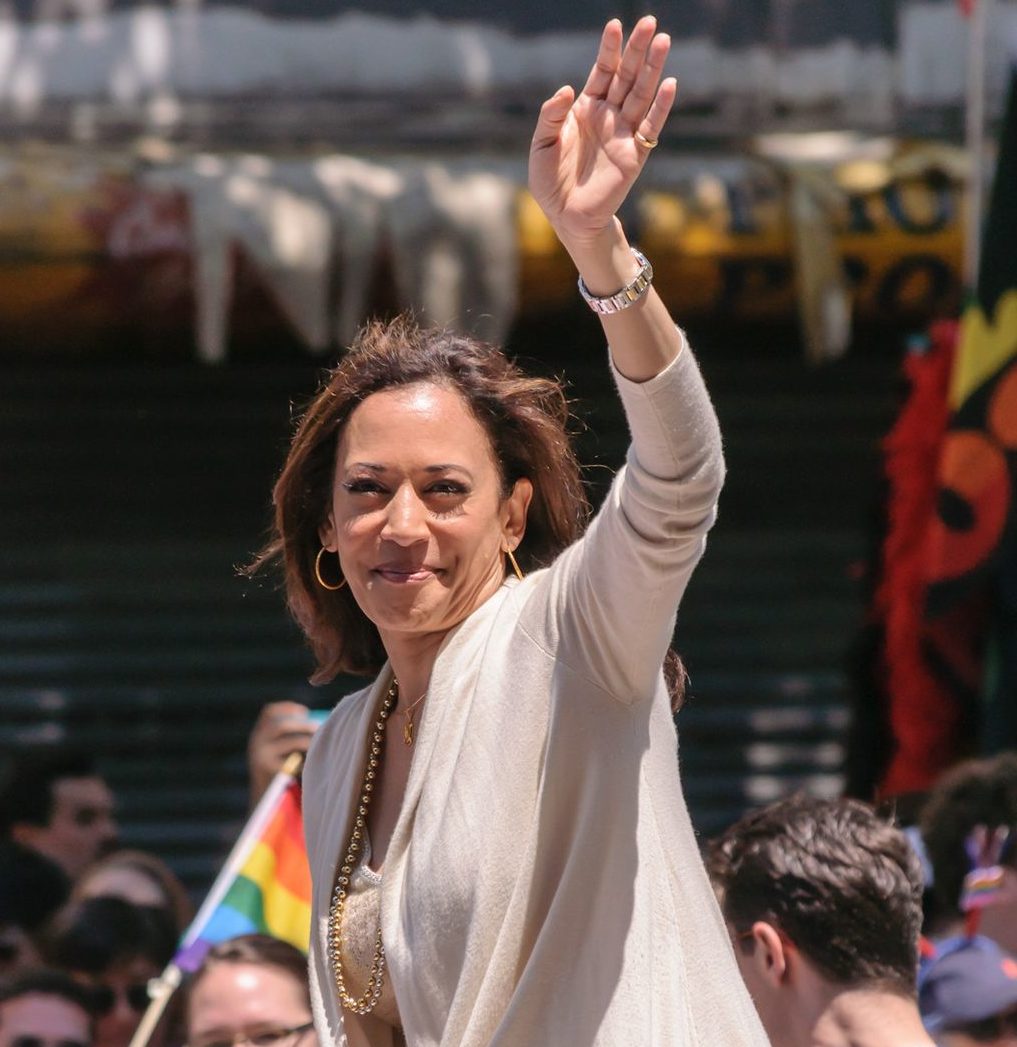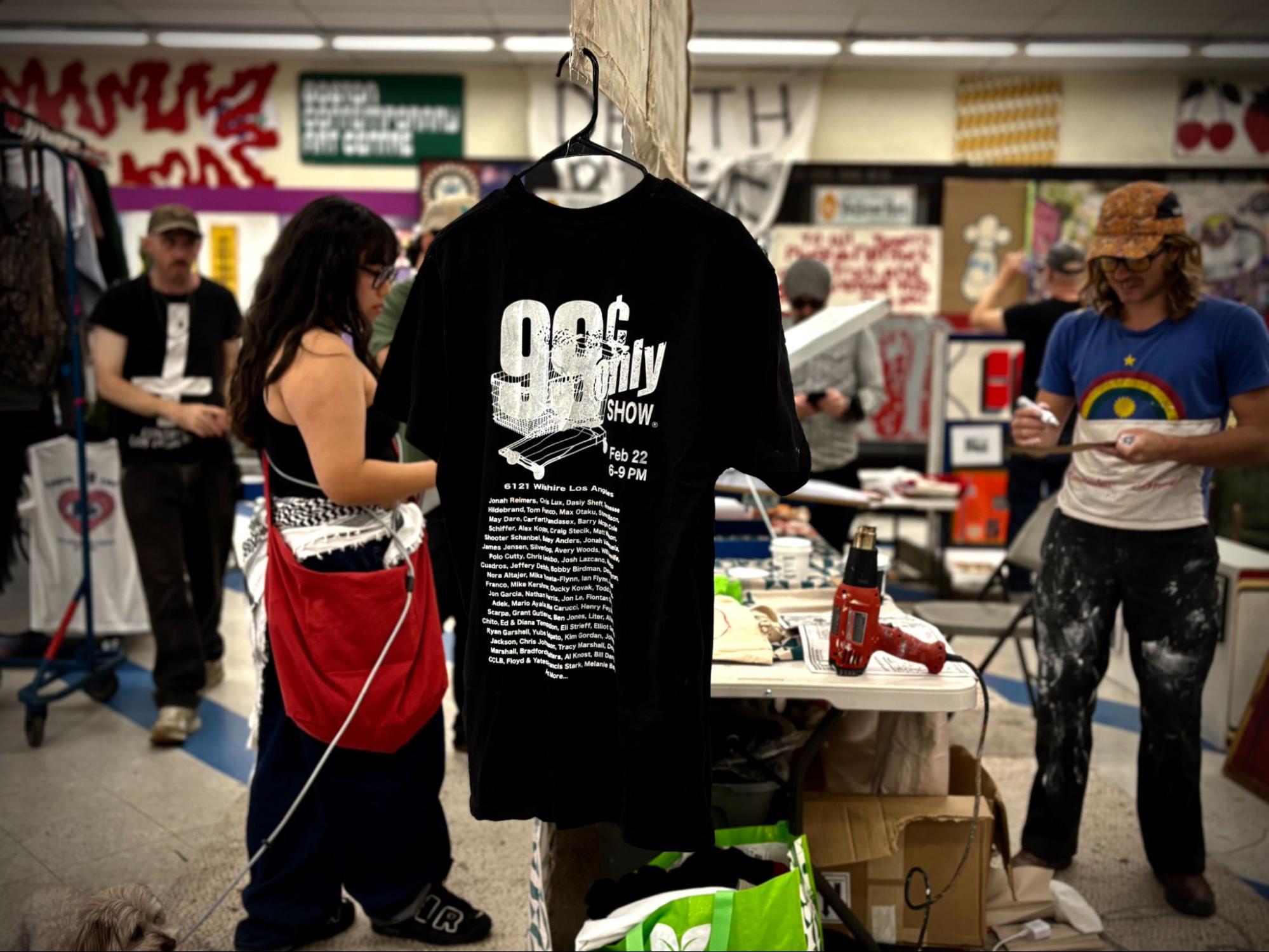[dropcap size=big]C[/dropcap]alifornia Sen. Kamala Harris officially entered the 2020 presidential election on Monday, Martin Luther King Jr. Day. Harris made her announcement on Good Morning America. If elected, she would become the first woman and woman of color to serve as U.S. president.
“The thing about Dr. King that always inspires me is he was aspirational. He was aspirational like our country is aspirational,” Harris told morning show hosts Robin Roberts and George Stephanopoulos. “We know we have not yet reached those ideals, but our strength is that we fight to reach those ideals.”
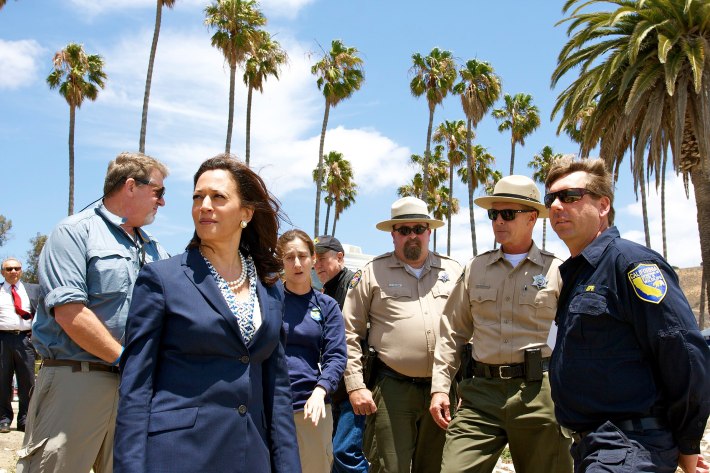
Harris announced her bid ahead of fellow Californian, and mayor of L.A., Eric Garcetti, who is still mulling his own run for the White House in 2020 even while troubling signs in the city stall him, including homelessness, a teachers strike that remains unresolved, and an expanding FBI probe into corruption at City Hall.
Harris won election in 2016 to be the junior senator representing California. Her colleague, senior Sen. Dianne Feinstein, said she would throw her support behind Joe Biden, former vice-president with President Barack Obama, if he declared candidacy for 2020.
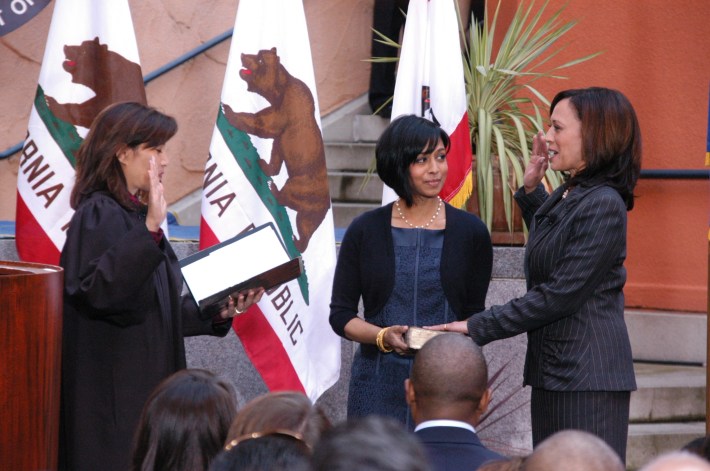
Harris was born to an Indian mother and Jamaican father in Oakland, and "had a stroller-eye view of the Civil Rights movement," according to her official bio. “My parents were very active in the Civil Rights movement. That’s the language I grew up hearing,” she said during her Good Morning America interview.
Harris has been compared to Obama for quickly rising through the ranks of the Democratic Party, and for having presidential ambitions after serving for a short time in the Senate.
“We need to give the American public more credit,” she said on the morning show, when asked if the country was ready for a woman of color to be president. “We have so much more in common than what separates us.”
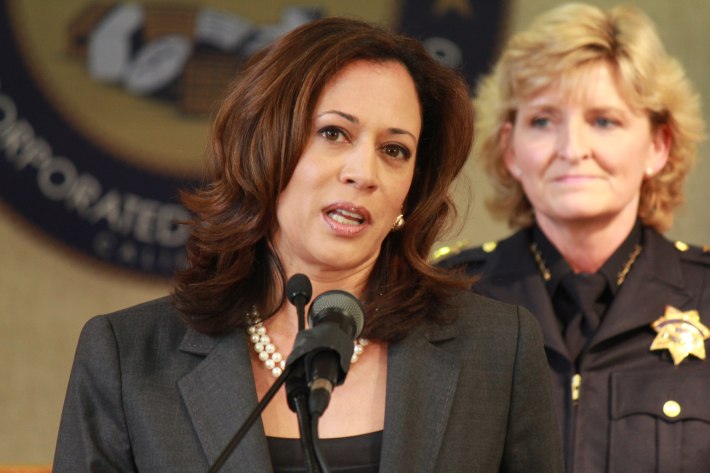
Career ‘Progressive’ Prosecutor
[dropcap size=big]H[/dropcap]arris has described herself as a “progressive prosecutor,” but she received criticism for some of her stances for grassroots progressives to her left.
A majority of her career has been as a prosecutor. From 2011 to 2017, she was the state’s attorney general. From 2004 to 2010, she was San Francisco’s district attorney. Prior to that Harris worked for San Francisco City Attorney Louise Renne as the chief of the Community and Neighborhood Division, and as a deputy district attorney in Alameda County.
She attended Howard University and received her law degree from the University of California, Hastings College of Law.
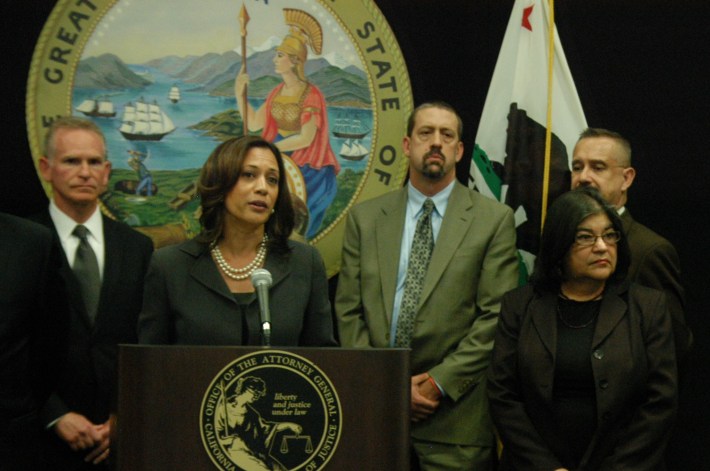
Harris faced criticism for championing legislation under which parents whose children were found to be habitually truant in elementary school could be prosecuted. Since 2011, California parents could face fines up to $2,000 and jail time if they don’t make sure their kids attend school regularly. The law had been criticized for the potential of it disproportionately impacting Black and Latino families.
After the Great Recession in 2008 and 2009, Harris also won a $25 billion settlement for California homeowners, but she refused to prosecute Steven Mnuchin's OneWest Bank for foreclosure violations in 2013, another negative for her party's ideological purists.
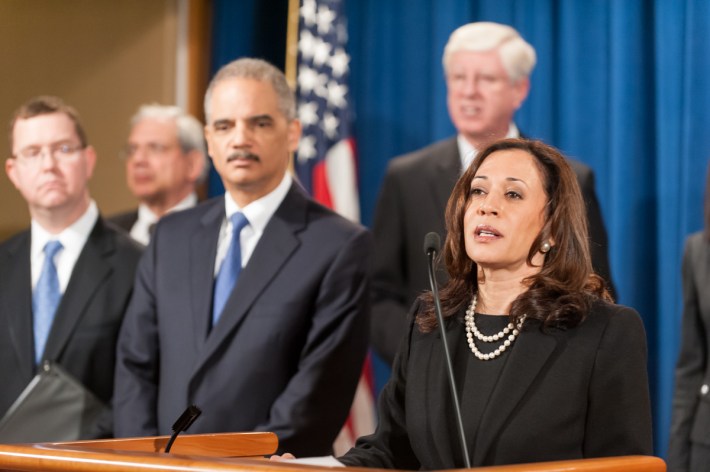
Presidential Limelight
[dropcap size=big]O[/dropcap]utside of California, Harris garnered national attention for her cutting questioning of then-Supreme Court Justice nominee Brett Kavanaugh during his controversial confirmation hearings last year.
A member of the Senate Judiciary Committee, Harris called Kavanaugh "unfit" to serve on the Supreme Court, and she said she believed Professor Christine Blasey Ford and praised her courage for coming forward.
“You have passed a polygraph and submitted the results to this committee. Judge Kavanaugh has not. You have called for outside witnesses to testify and for expert witnesses to testify, Judge Kavanaugh has not. But most importantly, you have called for an independent FBI investigation into the facts. Judge Kavanaugh has not,” Harris said.
Harris has also been vocal critic of President Donald Trump and called his border wall a “vanity project” and described the partial government shutdown that has left about 800,000 federal workers without pay an “emergency of his own creation.”
